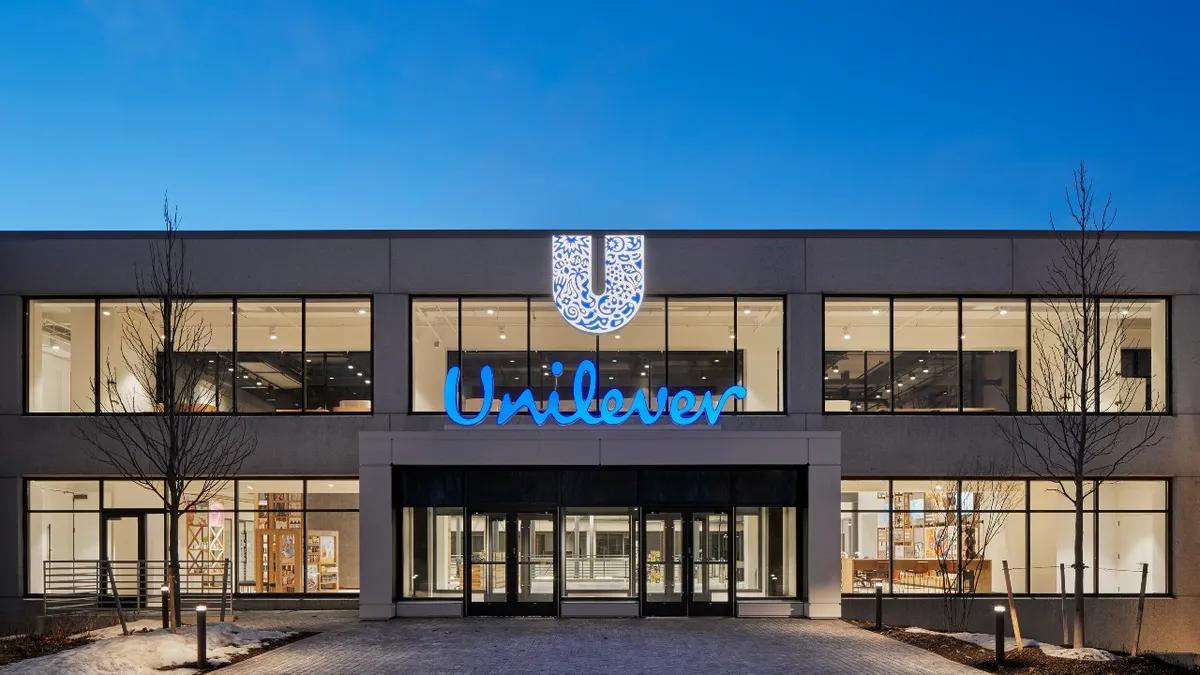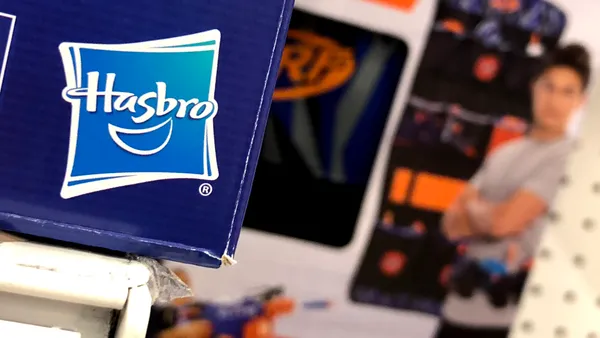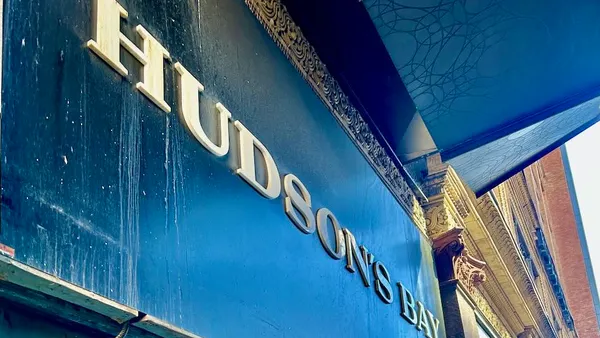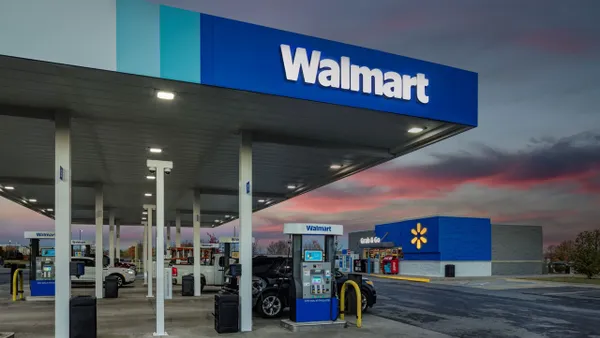Dive Brief:
- Unilever has named Hein Schumacher as its next CEO. Schumacher is currently CEO at European dairy giant Royal FrieslandCampina. He takes over for Alan Jope on July 1.
- Schumacher has been with Royal FrieslandCampina since he was hired as CFO in 2014. He has been its CEO since 2018. Prior to that, he was with H.J. Heinz for more than a decade, serving in positions in the U.S., Europe and Asia, where he led a turnaround of the Asia Pacific zone. He began his career as a finance manager at Unilever.
- Unilever CEO Alan Jope announced his retirement in September, following a year of change for the company.
Dive Insight:
Schumacher’s selection as the next Unilever CEO comes after a global search, kicked off last fall.
“Hein is a dynamic, values-driven business leader who has a diverse background of experiences and an excellent track record of delivery in the global consumer goods industry,” Unilever Chairman Nils Andersen said in the release announcing Schumacher’s hiring. “He has exceptional strategic capabilities, proven operational effectiveness, and strong experience in both developed and developing markets.”
Unilever has been on a major change path since 2021, when it sold most of its tea business — including its marquee Lipton brand — for $5 billion. Months later, in early 2022, Unilever made a 50 billion pounds (about $68 billion) offer to buy GlaxoSmithKline’s consumer unit, home to brands like Tums and Centrum vitamins.
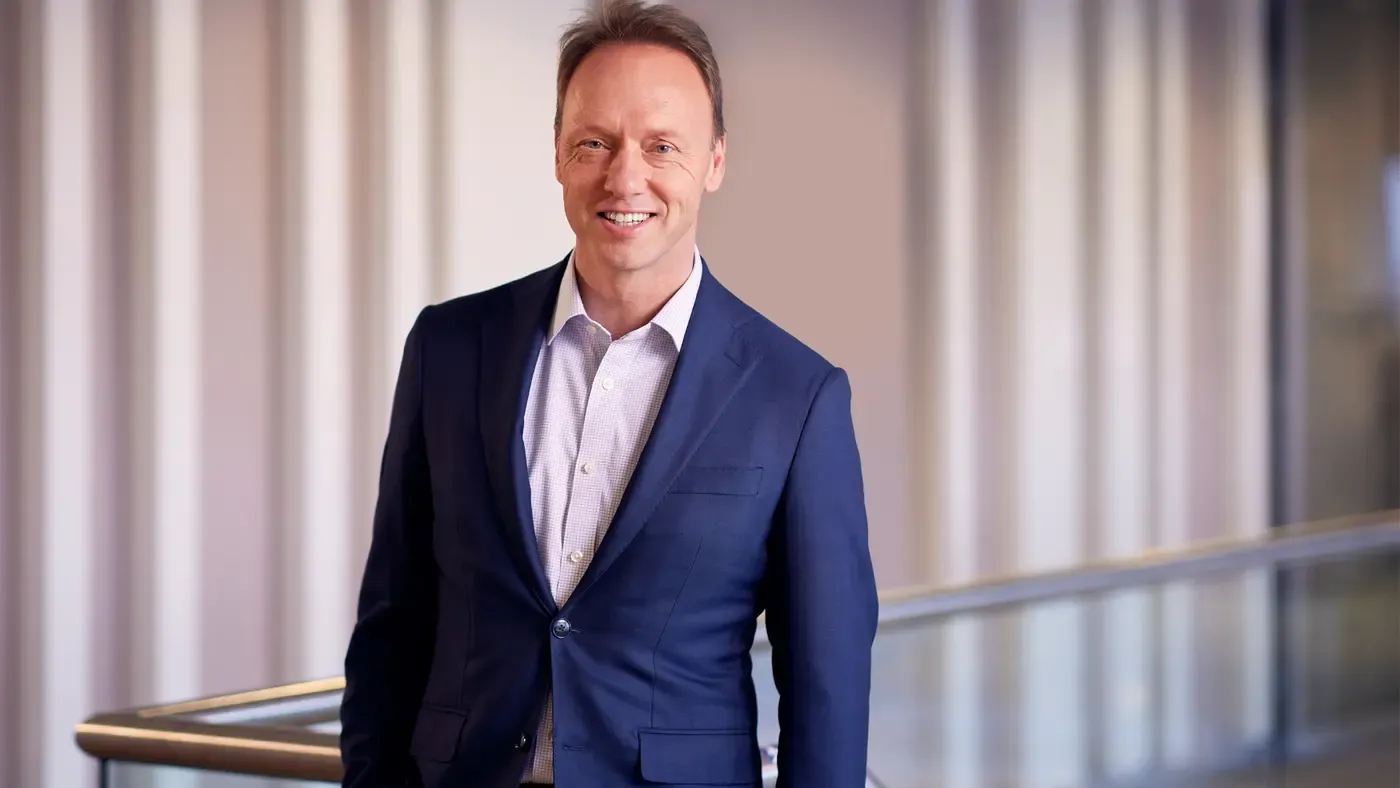
At the time, there was talk the European consumer goods giant was looking into divesting the entirety of its food business. As the offer for GSK’s unit became public, it noted in a regulatory filing that Unilever’s board concluded its future direction “lies in materially expanding its presence in Health, Beauty, and Hygiene.”
Unilever did not reach a deal to buy GSK, and the company also did not sell any more major food brands. Instead, the company instituted a massive restructuring, laying off thousands of managers worldwide and restructuring around five distinct product groups: Beauty & Wellbeing, Personal Care, Home Care, Nutrition and Ice Cream.
In the midst of the tumult, activist investor Trian Fund Management LP took a 1.5% stake in the company, and Unilever added Trian founding partner Nelson Peltz to its board.
In September, weeks before announcing his retirement, Jope said at Barclays Consumer Staples Conference that Unilever had no plans to sell its Nutrition or Ice Cream segments. Both, he said, are important parts of Unilever, and not as much of a drag on the company as assumed.
With an experienced dairy industry operator coming to Unilever, ice cream may become a new focus. However, Schumacher may also draw from his experience helming a complex global business navigating an uncertain economic reality.
Under Schumacher, FrieslandCampina has recently pursued major divestments to more closely target its business. As he detailed the company’s financial results in the first half of 2022, Schumacher said they had pursued a series of investments and divestments to optimize business in the face of “great uncertainty” in global markets.
Last June, the company was in talks to sell parts of its German consumer business to Theo Muller, including Landliebe, one of FrieslandCampina’s top 10 consumer brands by revenue. The deal does not appear to have closed yet.
FrieslandCampina is also working on divesting its Friso infant nutrition brand, which is sold in Asia, Europe and the Middle East. A sale has been put on hold because bids by those on the short list fell below expectations, Bloomberg reported last summer.
Schumacher also led FrieslandCampina in making big sustainability commitments — something that has also been a priority for Unilever. FrieslandCampina published a plan last spring to reach climate neutral dairy by 2050. Last summer, the company launched a pilot project with Rabobank and ag tech company Lely to install 93 nitrogen-reducing devices on dairy farms.
Analysts who spoke to Bloomberg welcomed the idea of a CEO from outside of Unilever. Investors also seemed to tentatively approve, with Unilever’s stock price increasing 2% in early Monday trading.



